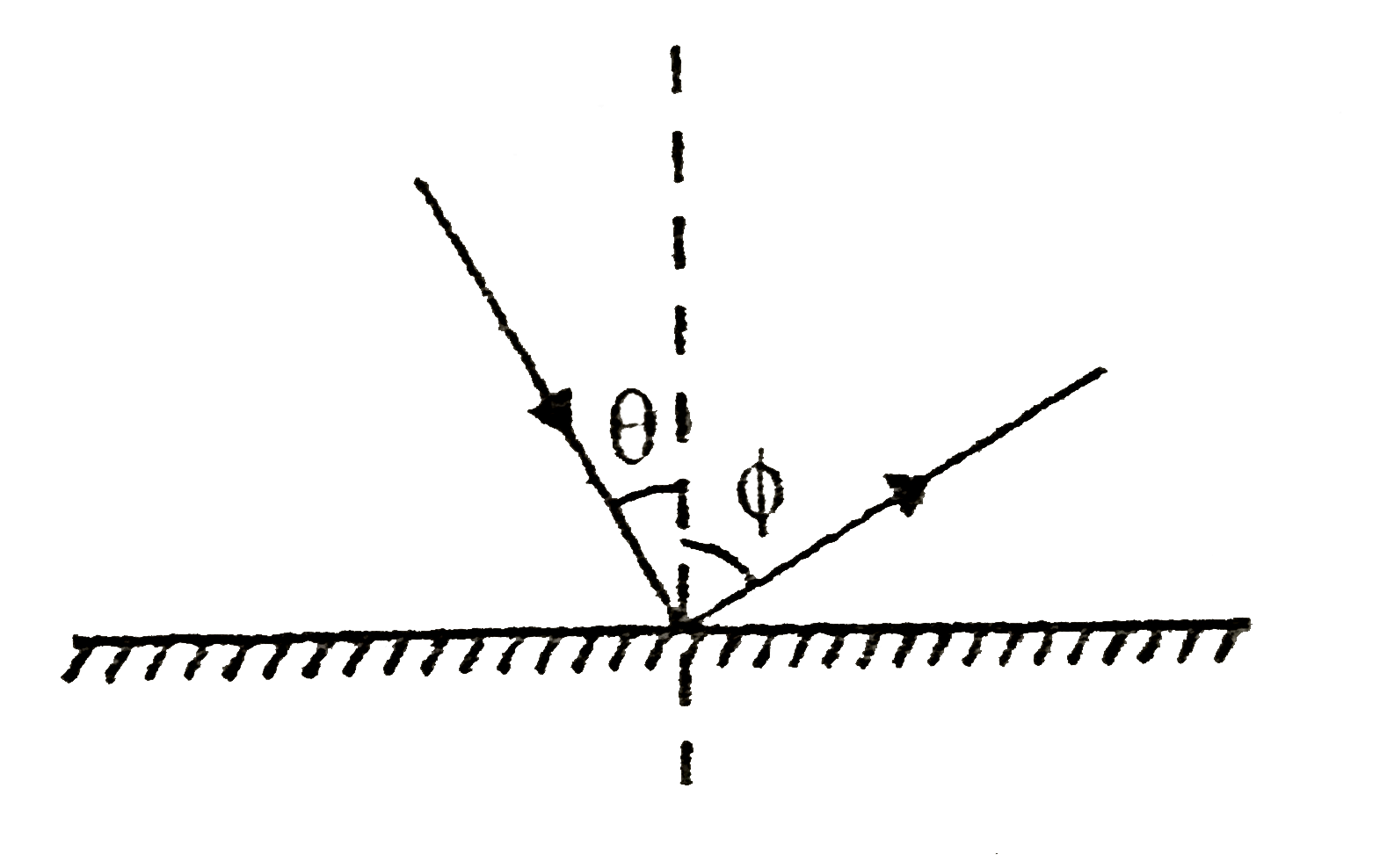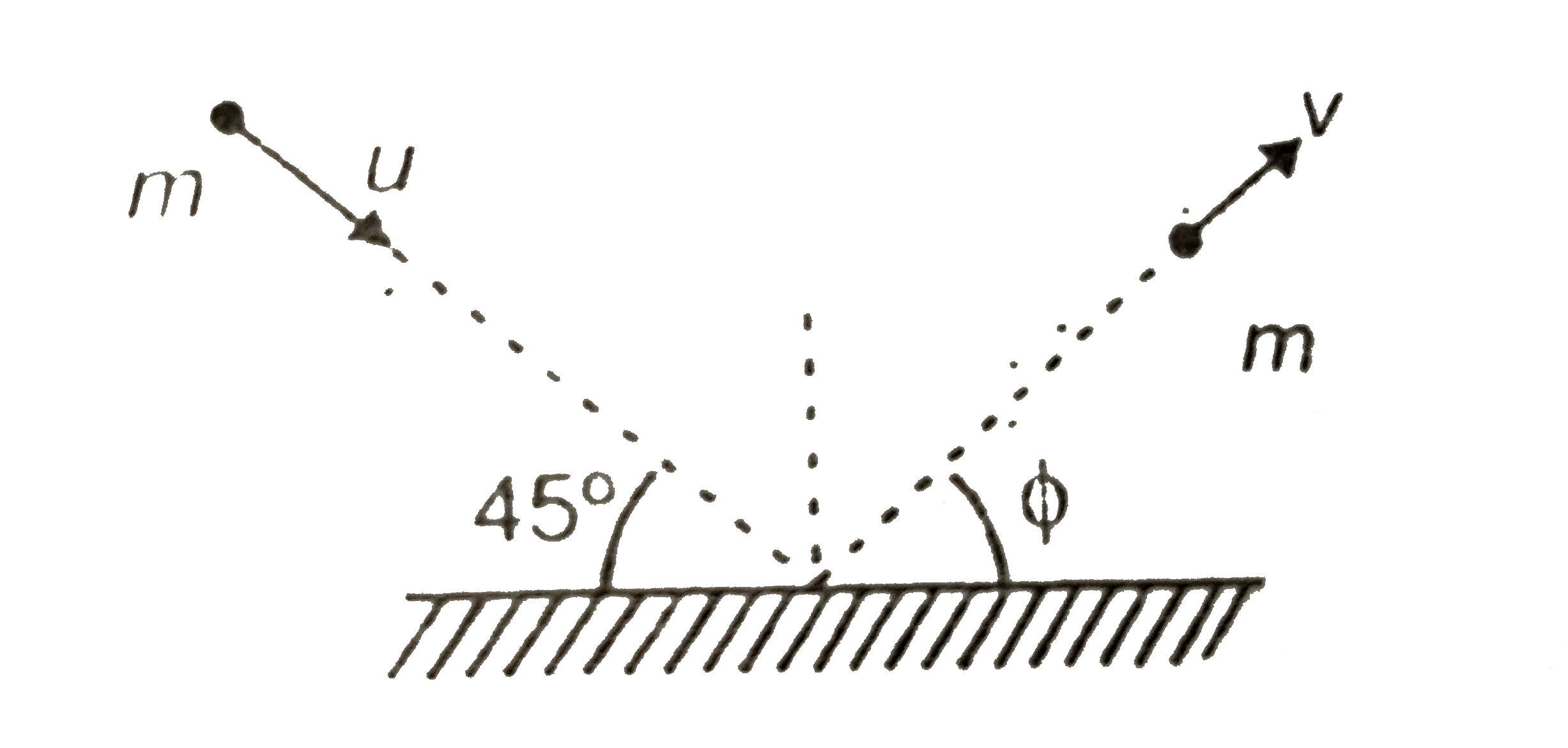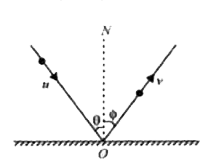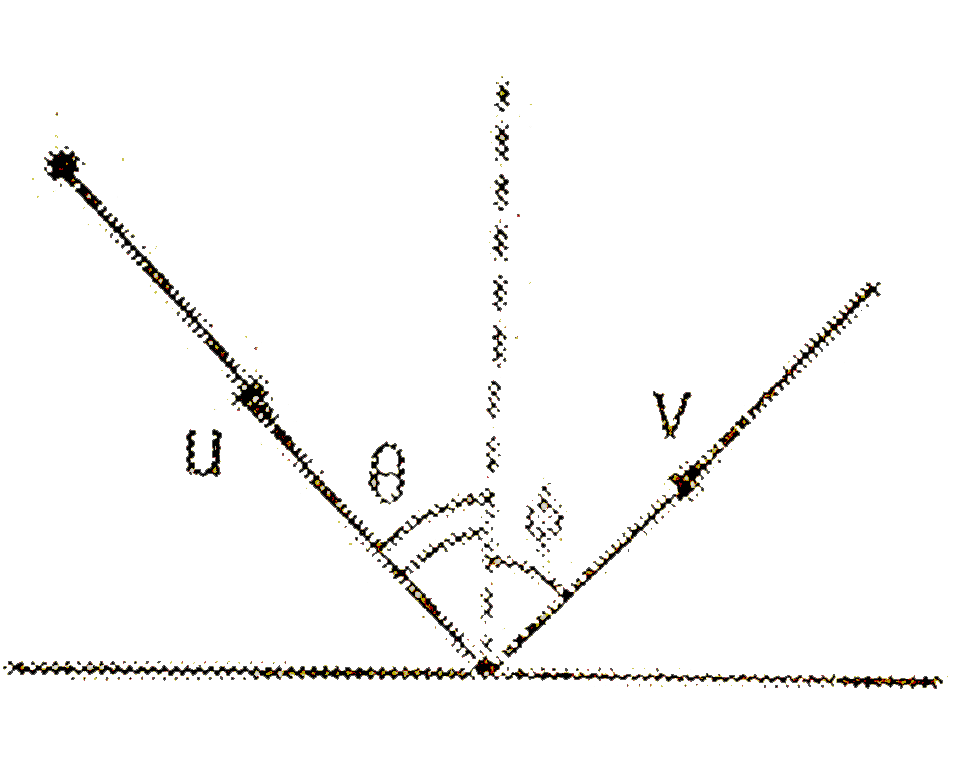A particle strikes a smooth horizontal surface at an angle θ>0 and it rebounds at an angle ϕ as shown

If collision is perfectly inelastic, then particle will stop immediately after the collision and ϕ will not be defined
If collision is perfectly inelastic, then particle will not stop after the collision
θ=ϕ, if collision is perfectly elastic
ϕ=90∘, if collision is perfectly inelastic
Step by step video & image solution for A particle strikes a smooth horizontal surface at an angle theta gt 0 and it rebounds at an angle phi as shown by Physics experts to help you in doubts & scoring excellent marks in Class 12 exams.
Updated on:21/07/2023Topper's Solved these Questions
- SYSTEM OF PARTICLES AND ROTATIONAL MOTIONBOOK - AAKASH INSTITUTECHAPTER - SYSTEM OF PARTICLES AND ROTATIONAL MOTIONEXERCISE - Assignment (Section - D) Linked Comprehension Type Questions
20 Videos
- SYSTEM OF PARTICLES AND ROTATIONAL MOTIONBOOK - AAKASH INSTITUTECHAPTER - SYSTEM OF PARTICLES AND ROTATIONAL MOTIONEXERCISE - Assignment (Section - E) Assertion-Reason Type Questions
12 Videos
- SYSTEM OF PARTICLES AND ROTATIONAL MOTIONBOOK - AAKASH INSTITUTECHAPTER - SYSTEM OF PARTICLES AND ROTATIONAL MOTIONEXERCISE - Assignment (Section - B) Objective Type Questions (One option is correct)
57 Videos
- SEMICONDUCTOR ELECTRONICS: MATERIALS, DEVICES AND SIMPLE CIRCUITSBOOK - AAKASH INSTITUTECHAPTER - SEMICONDUCTOR ELECTRONICS: MATERIALS, DEVICES AND SIMPLE CIRCUITSEXERCISE - Assignment (Section-D (Assertion and reason))
5 Videos
- TEST 1BOOK - AAKASH INSTITUTECHAPTER - TEST 1EXERCISE - EXERCISE
9 Videos
Similar Questions
A particles strikes a smooth surface at an angle θ and rebounds at an angle ϕ. Coefficient of restitution is 0<e<1, then

STATEMENT-1 : If the same particle is thrown at angle ϕ , it will rebound at an angle θ.
and
STATEMENT-2 : ϕ is greater than θ.
View SolutionA particle of mass m moving with a speed u strikes a smooth horizontal surface at an angle 45∘. The particle rebounds at an angle ϕ with speed v. If coefficient of restituion is 1√3, then angle ϕ is

View Solution
Knowledge Check
A particle strikes a smooth horizontal surface at an angle of 45∘ with a velocity of 100m/s and rebounds. If the coefficient of restitution between the floor and the particle is 0.57 then the angle which the velocity of the particle after it rebounds will make with the floor is
A30∘B45∘C60∘D90∘A particle strikes a horizontal smooth floor with a velocity a making an angle θ with the floor and rebounds with velocity v making an angle ϕ with the floor. If the coefficient of restitution between the particle and the floor is e, then
Athe impulse delivered by the floor to the body is μ(1+e)sinθBtanϕ=etanθCv=u√1−(1−e)2sin2θDthe ratio of final kinetic energy to the initial kinetic energy is (cos2θ+e2sin2θ)A particle strikes a horizontal smooth floor with a velocity u making an angle θ with the floor and rebounds with velocity v making an angle ϕ with the floor. The coefficient of restitution between the particle and the floor is e.
AThe impulse delivered by the floor to the body is mu (1+e) sin θ.Btan ϕ=etanθ.Cv=u√1−(1−e2)sin2θDThe ratio of the final kinetic energy to the initial kinetic energy is cos2θ+e2sin2θ.
A ball strikes the ground at an angle α. and rebound at an angle β. with the verticlal as shown in the figure .Then ,

View SolutionA ball strikes a smooth horizontal floor at an angle α with the normal to the surface and after rebounding from the floor , ball moves at an angle β with the normal . Find the relation between α and β if coefficient of elasticity is e .
View SolutionA particle strikes a horizontal frictionless floor with a speed u, at an angle θ with the vertical, and rebounds with a speed υ, at an angle ϕ with the vertical. The coefficient of restitution between the particle and the floor is e. The angle ϕ is equal to :

View SolutionA particle strikes a horizontal frictionless floor with a speed u at an angle θ with the vertical, and rebounds with a speed v at an angle ϕ with vertical. The coefficient of restitution between the particle and floor is e. The angle ϕ is equal to

View SolutionA particle strikes a horizontal frictionless floor with a speed u, at an angle θ to the vertical, and rebounds with a speed v, at an angle ϕ to the vertical. The coefficient of restitution between the particle and the floor is e. The magnitude of v is

View Solution
